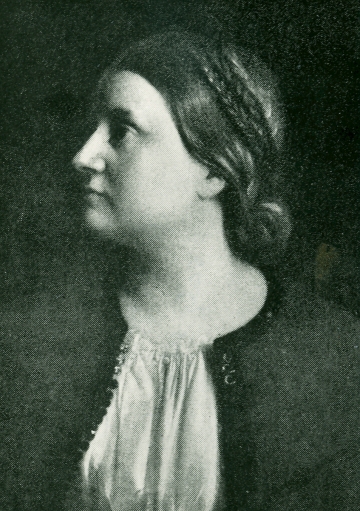Barbara Leigh Smith Bodichon
The full resource is FREE to all registered users of the website
If you are not already registered you can sign up for FREE website access to download the full resource.

- Born: 1827
- Died: 1891
- Occupation: Artist
- Claim to fame: She helped to change the law for women who were married to keep their own property and belongings.
Background
Barbara Leigh Smith was one of the early advocates for women’s rights. She was the daughter of the radical Liberal MP Benjamin Leigh Smith and Ann Longden, who were not lawfully married, despite bringing up many children together. Barbara’s upbringing was considered scandalous at the time, especially as Smith was part of the landed gentry, but it helped to provide Barbara with a sense of independence.
Political activism
Barbara became involved with women’s causes and became a celebrated and gifted artist, with exhibitions across London. In 1854, Bodichon published the Brief Summary in Plain Language of the Most Important Laws Concerning Women, which was crucial in the passage of the Married Women’s Property Act. Barbara was able to form a ladies committee of the Law Amendment Society, which she persuaded to consider the position of married women. A large countrywide petition was subsequently organised and drafted by Barbara on the matter, with one petition containing 3,000 signatures. These were presented to Parliament in 1856. Women at that time had very few rights, and were considered the property of men in many cases, especially when they were married.
Barbara married Frenchman Eugene Bodichon in 1857 but continued to be a leading campaigner for women. With her friend Emily Davies, she campaigned and worked towards women being allowed university education, helping to create Girton College. In 1865, Barbara wrote a paper for the Kensington Society and became a significant driving force behind collecting signatures for the 1866 petition. She was unable to present the petition due to illness.
Barbara was a member of the Enfranchisement of Women Committee (EWC) and was briefly its secretary. Her writings and activities helped to shape the views of other campaigners, including Elizabeth Wolstenholme-Elmy and Manchester campaigner Lydia Becker.
Glossary
- The Married Women’s Property Act – This act allowed women who were married to keep any property (belongings, money, etc.) as their own after they were married. Prior to the act, all their belongings were the property of their husband once they were married.
- Girton College – This was the first educational establishment that helped to educate women to degree level.
Questions
- What status were married women given if all their property belonged to their husband?
- Why did it matter that Barbara helped to establish Girton College?
- Barbara had experience in forming petitions – why did that help the early female petitioners?
Useful resources
Barbara Leigh Smith Bodichon, ‘A Brief Summary in Plain Language of the Most
Important Laws of England Concerning Women – with remarks’ (1854)
